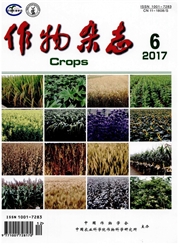

 中文摘要:
中文摘要:
概述了我国农作物田间杂草的主要类型、除草剂主要类型及其作用机制以及农作物除草剂抗性主要机制,综述了作物除草剂抗性育种的研究进展,比较了传统育种和转基因育种方式培育除草剂抗性作物的优缺点,总结了转基因育种存在的安全性问题。同时介绍了转基因培育除草剂抗性作物中常用的抗性基因以及基因转入受体的方式,展望了CRISPR/Cas9 ( clustered regularly interspaced short palindromic repeats, CRISPR-associated protein 9 )等基因编辑技术在农作物除草剂抗性育种研究中的应用与发展前景。
 英文摘要:
英文摘要:
This article reviewed the harmful weeds, herbicides and their mechanisms, as well as the herbicide- resistant mechanisms of crops, and summarized the research progress in breeding crops conferring herbicide-resistant. The advantages and disadvantages of traditional and transgenic breeding methods for herbicide-resistant crops were compared, and the biosafety assessment of herbicide-resistant transgenic plants was issued. At the same time, this article briefly introduced the herbicide-resistant genes commonly used in transgenic plants and the ways of these genes transfer into receptors. It was concluded that the CRISPR/Cas9 gene editing techniques had great potential in developping crop cultivars conferring resistance to herbicides.
 同期刊论文项目
同期刊论文项目
 同项目期刊论文
同项目期刊论文
 期刊信息
期刊信息
